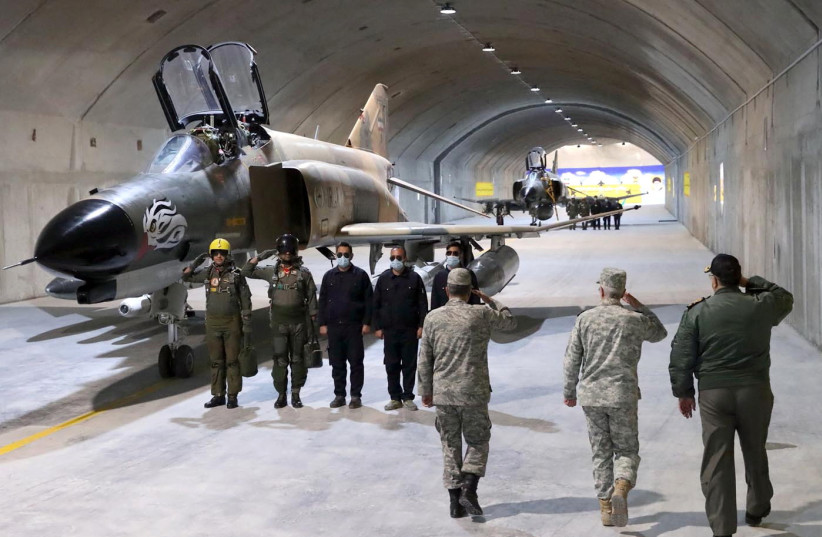We should attack Iran, even if we do it alone, former NSC head says
Maj.-Gen. (res.) Yaakov Amidror, former head of Israel’s National Security Council, said that Israel should attack Iran should an unfavorable nuclear deal be reached, in a conversation with Aryeh Eldad Shay Golden on 103FM on Tuesday.
During the conversation, Amidror addressed an International Atomic Energy Agency (IAEA) report stating that Iran holds enriched uranium at a level sufficient to produce approximately ten nuclear bombs, and emphasized the seriousness of the threat.
“This should influence us. We need to understand that if there is no good agreement, we will have no choice but to attack Iran. We cannot allow the Iranians to continue advancing their nuclear program.”
When asked whether Israel is capable of attacking without American support, he replied: “We can attack less effectively, but we can still attack.”
Regarding the expected improvement in Iran’s air-defense systems since the last attack, he said, “It’s a constant race. They probably learned from the vulnerabilities they had following our attack and improved their defense capability. But we also learned lessons, and today we’re definitely much better prepared than we were when we attacked. It’s true that the other side is improving, but it’s not true to think that we’re not improving too.”

Asked whether an Israeli strike on Iran is even realistic, Amidror said, “Our strikes in Yemen are the best exercises the Air Force can do. It’s a longer distance than what’s needed to fly to Iran, it’s very complex, and on the technical-logistical side, it gives the Air Force a lot of confidence. Can we do it like the Americans? The answer is no. It’s not something simple that can be done routinely.”
Amidror also discussed the food-distribution project for Gaza through civilian mechanisms.
Distributing aid to Gazans as a mechanism to weaken Hamas
“So far it’s working, but what will determine its success is the long term. Unless Hamas manages to ruin the system and the Gazans continue receiving food over Hamas’s head — that will be a huge success.”
Asked how much of the food actually reaches the civilian population, he said, “That’s a question that’s asked about almost every society in the Middle East. We can’t change the Gaza system. We can’t solve all the problems of Palestinian society. It’s a society where the leadership is consistently corrupt, and the strong take.”
Regarding images from the ground, Amidror noted: “If there’s no shooting, then at first glance it will look more okay. Will it solve any problem for us internationally? No.”
Asked about claims that Israel is financing the aid, Amidror responded: “Transferring the food is part of the war. It’s part of the effort to create a situation where Hamas doesn’t control the Gaza Strip.”
On negotiations with Hamas, he said: “We need to continue the military pressure as if there are no negotiations — unlike with Iran, where during negotiations it will be very difficult for us to attack. In Gaza, our pressure on Hamas is part of the bargaining chips the Americans have. Where will it lead? I can’t say.”
Turning to developments in the North, Amidror addressed the possibility of renewing diplomatic dialogue with Syria, particularly with Ahmed al-Sharaa, Syria’s new president.
“For a Jew like me, who was the intelligence officer of Northern Command more than 30 years ago, it’s really interesting to see Syria’s transformation. And I support giving talks with Sharaa a chance,” he said.
He continued: “In Arabic, there’s a proverb that says: ‘There’s no tax on words,’ so everything he [Sharaa] says is nice — but it needs to be judged by actions. And the one thing that can’t be whitewashed is the curriculum you teach in schools.”
He concluded: “It’s possible that this person, on his path from being an al-Qaeda affiliate to being Syria’s ruler, realized that there’s no way to govern Syria the way he might have wanted in theory. There’s a world out there, and in that world, he has to take others into account.”





Comments are closed.